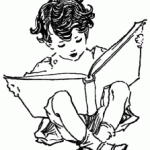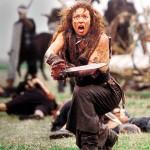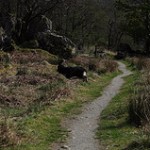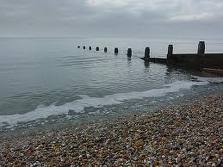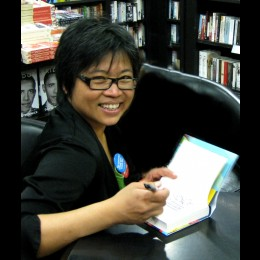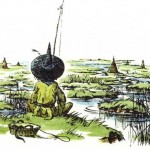You might well wonder. Why would any sane person face rejection after rejection, hours of work for an income of maybe £5k, and people asking ‘so what’s your proper job?’ or ‘are you the next JK Rowling?’ One answer, of course, is that children’s writers and illustrators are not sane!
A recent SCBWI group topic set by Candy Gourlay was “Authors and Illustrators in Waiting … How are you coping?” Paul Morton of Hot Frog Graphics came up with an excellent response:
‘ keep at it and keep believing’
I rather thought that could well be a SCBWI motto. It also set me to thinking about optimism in general.
It is hope that that inspires people to make New Year’s resolutions. Although we can be a little dismissive of such clichéd vows, we have to admire and learn from those who do make it through the grotty days of January and February sticking to their promises. The tough nuts who carry on cycling to the gym, the reformed smokers, the impressive slimmers – each deserves our admiration. Indeed, any sort of promise or vow is predicated on hope: I believe it is another reason why we love weddings, and why a baby brings joy.
 Sometimes the sheer difficulty of attaining your dream can make hope shrivel. It seems hidden, and keeping going seems more a case of dogged determination than optimism. Tolkien had Aragorn hidden and named Estel (Hope) as a child. He made the future king of Gondor wander the wilderness for the best part of sixty years. He suffers moments of terrible self -doubt: “An ill fate is on me this day, and all that I do goes amiss” – but his stubborn determination and belief in good over evil end in triumph.
Sometimes the sheer difficulty of attaining your dream can make hope shrivel. It seems hidden, and keeping going seems more a case of dogged determination than optimism. Tolkien had Aragorn hidden and named Estel (Hope) as a child. He made the future king of Gondor wander the wilderness for the best part of sixty years. He suffers moments of terrible self -doubt: “An ill fate is on me this day, and all that I do goes amiss” – but his stubborn determination and belief in good over evil end in triumph.
It is also hope that makes campaigners speak up for the things that matter to them: campaigner Steve Ross and children’s writer Michael Morpurgo bother to call on the government to “stand up” for libraries on Radio 4’s “You and Yours” as part of the show’s debate into library closures. Why Kate Mosse, Philip Pulman and Alan Gibbons keep banging on about this too – because they have hope. And it was why anti-slavery campaigner Olaudah Equiano wrote:
I hope to have the satisfaction of seeing the renovation of liberty and justice, resting on the British government, to vindicate the honour of our common nature.
Just as well something else other than the world’s ills came out of Pandora’s Box.


